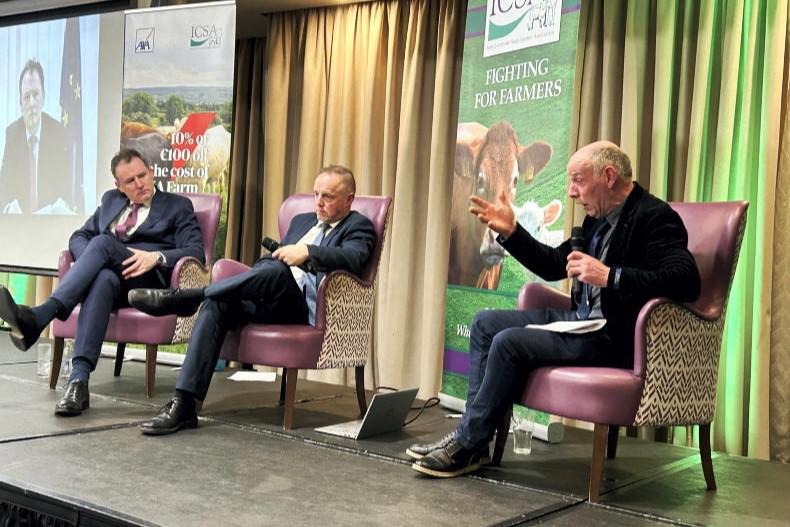The possibility of the EU agreeing a free-trade agreement with Mercosur before summer 2024 has been played down by Minister for Agriculture Charlie McConalogue.
Minister McConalogue maintains that neither Ireland nor the EU will budge until there is an agreement drafted that will guarantee that the agri-food exports of the South American Mercosur countries can meet the standards applied to farmers here.
“My very clear view on it is that there needs to be equivalence of standards, and there needs to be expectations on countries who are importing into the EU, as we expect of our own farmers and food producers,” the minister said.
“And that has been the clear line I have taken in relation to Mercosur, and we continue to push [that],” he said.
Minister McConalogue was speaking to the Irish Farmers Journal after the Irish Cattle and Sheep Farmers Association (ICSA) AGM in Athlone on Thursday.
This was one week after the European Commissioner for Trade Valdis Dombrovskis indicated his intention to get a deal across the line before the summer.
Concerns on the prospect of cheaper South American food entering EU agri-food markets at cheaper prices, but lower standards than are produced here, were among the issues raised by farmers participating in the IFA’s nationwide tractor protest, also on Thursday.
The minister added that any trade deal agreed must cater for both “our own interests” and those of the EU.
“It is certainly not the case in my view that the same standards apply across the Mercosur countries as apply across the EU.
“I know it has to be an absolute bottom line, and in fairness, I believe that is why the trade deal hasn’t happened.”
Production in focus
Discussions on EU agri-food and environmental policies must refocus on food production, Minister McConalogue also told the Irish Farmers Journal in response to a question on recent farmer protests.
“I think there needs to be definitely – and I said this at the EU Council meeting last week and I have said it repeatedly – more of a focus on food security and production, and to train the spotlight on that,” he commented.
“Because that is the first and primary ask we make of farmers and it hasn’t been prominent enough in any of the discussions that’s happened anywhere over the last couple of years,” the minister said.






 This is a subscriber-only article
This is a subscriber-only article










SHARING OPTIONS: